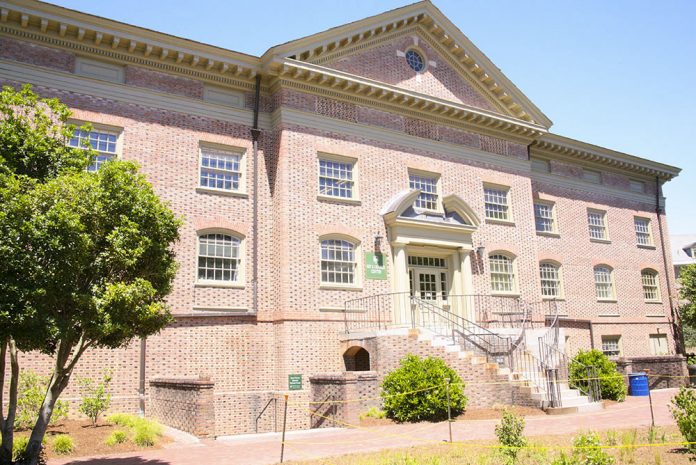At the College of William and Mary’s Student Assembly meeting Nov.19, senators met to discuss a potential new bill that would make some changes to the implementation of the Financial Regulatory Act passed last spring.
Sen. Will Wasson J.D. ’21 and Sen. Kat Ello J.D. ’21 delivered a presentation about their upcoming Publications Protection Act. In explaining the need for the act, Wasson and Ello recounted the history of the funding for law journals at the Marshall-Wythe School of Law. Since 2003, the law journals have received funding from the Media Council in the form of block grants, unlike other publications which are required to submit itemized line budgets to the Media Council. The need for this practice was discussed in 2003 by former College President Taylor Reveley III and former Vice President of Student Affairs Sam Sadler, who believed that the uniqueness of the law journals as for-credit publications warranted a guaranteed funding process.
The Financial Regulatory Act, passed by the Senate in April 2019, ultimately lowered the ceiling cap on the Media Council Reserves budget from $75,000 to $55,000. This decrease caused Wasson and Ello to believe that if an expensive emergency occurred, law journals would be the first publications to see their budgets slashed. The Publications Protection Act, or PPA, aims to raise the Reserves budget up to $65,000 to account for this potential issue.
“We were very concerned because we were the only graduate organizations involved in the Media Council,” Wasson said. “We were very concerned that we would take the brunt of that.”
Sen. Meghana Boojala ’22 argued that the Media Council typically only uses $20,000 of its annual reserves budget and indicated that publications can apply for more funding if necessary. Wasson responded by pointing out the nature of the Media Council Reserves.
“The reserve fund is for emergencies,” Wasson said. “You can’t look at history and say, ‘this is what an emergency will look like,’ because the worst case scenario hasn’t happened yet.”
However, this practice of granting these publications block grants is not written in SA Code or the Media Council bylaws. Wasson hoped to codify the practice in order to ensure its legitimacy and continuity, as in recent years, the Media Council has requested that some law journals submit itemized budgets for the first time.
The PPA also proposes several other changes to the way SA operates in relation to the Media Council. It stipulates that the Media Council contract is negotiated every three years instead of every two years and mandates that two representatives from SA and two representatives from Media Council negotiate this contract. Furthermore, it proposes that two thirds of both the Senate and Media Council must approve of this budget. Additionally, it mandates that publication funding can only be amended with the votes of three-fourths of the Senate and clarifies that Media Council must be made aware of amendments a week ahead of time.
Earlier in the meeting, during public comment, Rory Fedorochko ’22 introduced himself to the Senate as the author of the opinion piece “Members of Student Assembly lack key accountability, hinder accessibility for students,” published in The Flat Hat’s Nov. 18 issue. At the meeting, Fedorochko stressed that he respected SA members but said that he felt they were lacking transparency, especially when it comes to the events of weekly meetings.
SA Vice President Ellie Thomas ’20 thanked Fedorochko for attending and sharing his concerns with the Senate, and Sen. Henry Philpott ’22, the sponsor of the Website Modernization Act, informed Fedorochko of the progress being made to update the SA website.
At the end of the meeting, Fedorochko said he learned a good deal about the work of SA just by sitting in on Senate, but that students should not have to attend weekly to be updated about this work.
“This meeting, we’ve been here for an hour and a half, I don’t think all students have this time,” Fedorochko said. “… At this meeting I’ve heard stuff I’ve never heard before at all, and I feel like the goal should be the meetings not being the gateway to getting the minutes. I should be able to see all of the agenda and stuff, and understand these things, because I missed a club meeting for this. I have other priorities. I definitely can’t come to other meetings and I know most students can’t come too. It’s just thinking about the people that probably would be willing to go to these events, they just don’t know about them at all.”
Also at this week’s meeting:
- Ello was officially inaugurated as a senator by Review Board Chair Hank Blackburn ’20. She has served in the Senate since the beginning of the 327th Senate, but was never officially sworn in.
- The senators passed the Going to the Grads Act, which designates February as Graduate School Inclusion Month and calls for the senate to hold three of their weekly meetings at each of the graduate schools in February 2020.

